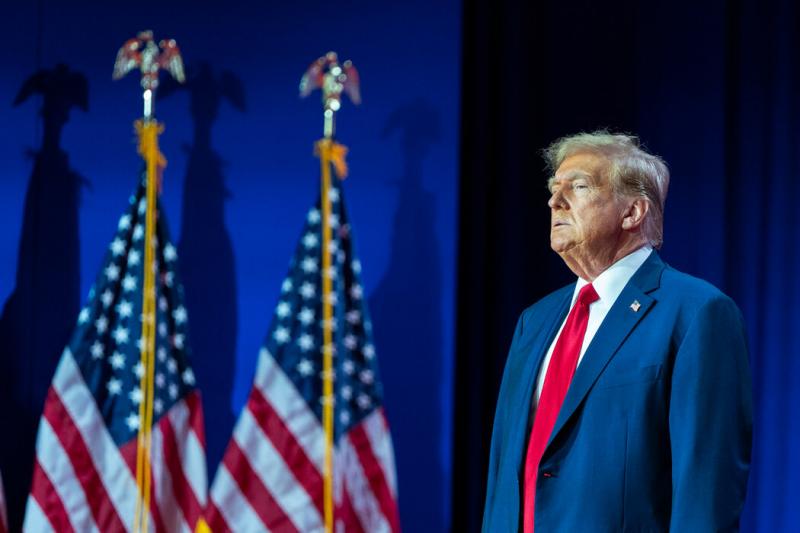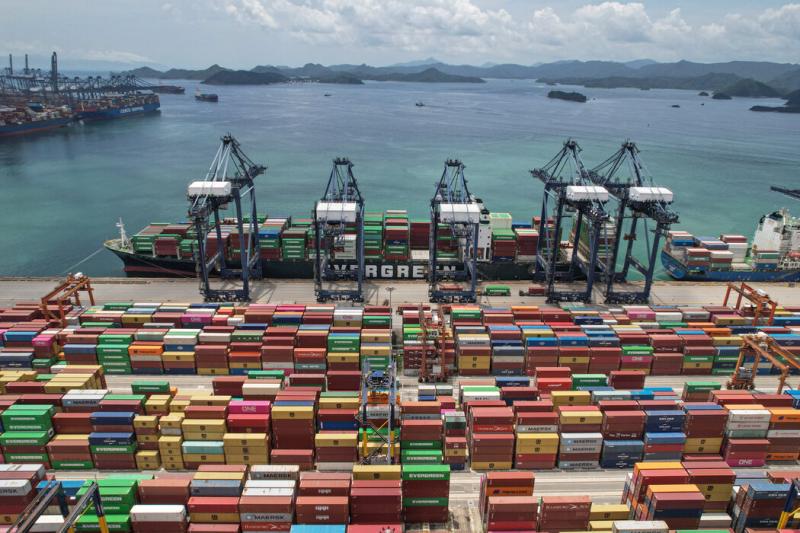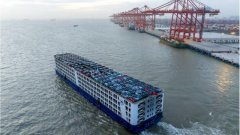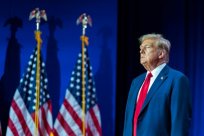
In March 2018, on the second day when it was announced that the imported metal -whether it was from the American allies or the opponent -the full tariffs, President Trump shared one of his core economic philosophy on social media:"The trade war is a good thing, it is easy to win."
As the president, Trump has launched the largest tariffs in the United States since the Great Depression, and has levied high tariffs on China, Canada, the European Union, Mexico, India and other governments.These countries have returned to impose tariffs on American soybeans, whiskey, orange juice and motorcycles.The export of agricultural products in the United States has dropped sharply, prompting Trump to provide farmers with $ 23 billion to help the loss of losses.
Now that the president is running again, Trump promises to upgrade the trade war sharply.He proposed that "a unified benchmark tariff on most foreign products" includes higher tariffs on countries with depreciation of certain currencies.In an interview, he proposed a plan to levy 10%of tariffs on most imported goods and 60%or higher tariffs on Chinese goods.He also proposed to reduce federal income tax and rely on tariffs to obtain income.
Trump, who once claimed to be "tariffers", has long believed that tariffs will promote the development of American factories, reduce the gap between imports and exports, and increase the employment opportunities of the United States.
His first round of tariffs hit imported goods worth more than $ 400 billion, including steel, solar panels, washing machines, and Chinese products such as smart watches, chemicals, bicycle helmets and motors.His reason is that the import tax will revive the US manufacturing industry, reduce dependence on foreign goods, and enable American companies to better compete with cheap products from China and other countries.
Economists said that tariffs have indeed reduced imports and encouraged American factories in some industries, including steel, semiconductors and computer equipment.But the cost of doing so is very high, and it is likely to offset any overall income.Studies have shown that tariffs have led to rising US consumers and factories dependent on foreign investment, and reduced exports of some retaliated goods in the United States.
Trump's taxation of imported goods now may be 10 times that of his first term. Economists said that this approach may trigger a high price of high prices, causing the United States to fall into the United States.The decline of trade war.
David Otto, a professor of economics at MIT, said that these proposals "almost immediately have a great impact on prices."
"I don't think they will do this," Otto said."This is easy to lead to economic recession."
In a recent letter, 16 economists who have won the Nobel Prize in the Nobel Prize have expressed "deep concerns" by the risks brought by the second Trump administration to the economy, inflation and the rule of law.
"We believe that Trump's second term will have a negative impact on the economic status of the United States in the world and has an unstable impact on the US domestic economy," they wrote.
Trump has a much more active view of its supporters on tariffs. They believe that tariffs can be used as a bargaining chip negotiated with foreign governments, reducing the trade deficit to China, and bringing the growth of employment opportunities in the United States.
"I happened to be a firm supporter of tariffs, because I think the tariff can bring you two things: they can bring you economic benefits, but it can also bring you political benefits," Trump recentlyThe podcast said.
The National Press Secretary of the Trump campaign team, Caroline Levitt, said in a statement: "The American people do not need to be worthless and out of reality Nobel Prize winner to tell them.The money put in their pockets "
"President Trump created the strongest economy in American history," she said."In just three years, Biden's out of control's expenditure caused the worst inflation crisis since generations."
Golden and Stabing Law Firm's international trade team partner Jamisen Griel participated in China's trade negotiations during the Trump administration. He said that Trump officials' point of view is that the tariffs "especially helpThe employment of supporting the US manufacturing industry, especially when it corrects the unfair trade practices. "
Greel said that China has long adopted policies that are not conducive to American workers, but other countries have unfair trade and tax policies, or exchange rate imbalances.
"If you make the competitive environment fair, Americans don't have to participate in unfair competition," he said.
Trump's tariffs have received support from the beneficiary industry in the United States.President Biden also adopted his own policy. He chose to keep Trump's tariffs on China unchanged, and at the same time increased some of his tariffs, including electric vehicles, steel and semiconductors.
But some industries with the worst hit by the Trump trade war do not want to see this situation.Senior executives in industries such as retail and spirits are worried that a new round of tariffs may cause tensions, increase their costs, and be blocked outside the key overseas market again.
In order to counter Trump administration's tariffs on steel and aluminum, the European Union imposed a 25%retaliatory tariff on US whiskey. As a result, the exports of liquor in the United States fell by 20%.The tariffs against China increased the purchase cost of retailers, forcing them to either increase the price or reduce profits.
"What we need is a trade policy, not just more tariffs," said David Fllenqi, executive vice president of the National Retailer Federation, who is responsible for government relations.The federation is a representative agency of department stores, e -commerce websites and groceries. In 2018, it had advertised on television to oppose Trump's tariff policy."Their actions only increased the friction of the supply chain, causing consumers to lose $ 220 billion."
"Former President Trump regards trade as a certain kind of zero -sum game -either you win, or I win," Frank said."Trade is not operating like this."

In the industry that finally obtains tariff pardon, the help or obstacle of tariffs on exports is obvious.In 2021, as part of the agreement reached by the Biden government and the European Union, the whiskey tariff was temporarily canceled.The US whiskey exports to the European Union increased from US $ 439 million in 2021 to $ 705 million last year.
Chiris Sworder, chief executive of the US Council, said that if Trump was elected again, he hoped that he could realize that the strong export of American spirits would help achieve his goal of reducing the trade deficit.This lobbying group hopes that the EU tariff suspension will be extended in March next year.
"For President Trump, we clearly appreciate and respect his efforts to reduce the trade deficit," Swannge said.He has elaborated his view to the Trump's campaign team."Tariffs imposed on distilled wine will run off with the original intention of reducing the trade deficit."
Studies have shown that tariffs have indeed achieved the purpose of increasing domestic production in the protected industry, but also brought other costs to the US economy.
? A non -party government research found that tariffs on foreign steel and aluminum levying the United States increased the size of US $ 2.2 billion in steel and aluminum production in 2021.However, American factories that use steel and aluminum -made cars, tin pots and electrical appliances have to bear higher cost of raw material, which reduced the output of these factories to $ 3.5 billion in the same year.
Multiple studies have shown that the effectiveness of tariffs is also half -or bad in terms of employment.In a recent paper, Otto and other economists found that Trump's trade policy and revenge measures in other countries have a slightly negative accumulation effect on US employment.To cheap.
As far as inflation is concerned, according to research estimates, as tariffs increase, American families are facing higher prices -from hundreds of dollars to more than $ 1,000 per year.
But economists said that consumers may not associate the higher prices they paid to with tariffs, because during Trump's term, the inflation rate is very low and the economy is strong.
Although the economy is still strong, since 2021, prices have soared and inflation has remained high.This time, the price increase caused by tariffs may be more obvious and painful.
A recent analysis of Peter Sen Institute of International Economics found that if Trump imposed 10%tariffs on all commodities and imposed a 60%tariff on China, the annual expenditure of typical families in the middle position in the income distribution will beAdded about $ 1700.
An analysis made by the right -tied U.S. Action Forum estimates that 10%of tariffs may bring an additional $ 2,350 an annual increase of $ 2,350 to each American family.60%of tariffs on Chinese goods will increase the cost of American households by $ 1950.
The burden on these tariffs will be more on the poor families, because their daily necessities will have a greater proportion of income.
Considering that voters are most concerned about inflation, this may eventually bring opposite consequences to Trump.
Paul Rozick, an electrical warehouse manager from Ben Salim, Pennsylvania, queued in Philadelphia to wait for Trump to participate in Trump's election rally on Saturday that food grocery and gasoline prices were high, which exceeded his salary increase.
"Inflation rose by about 20%, but our salary was only about 2%," Luo Zik said."I have lost less money in my bank, because when I go out, I spend more money.



